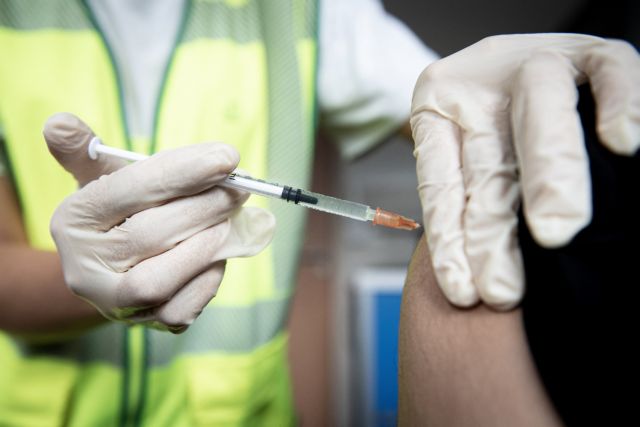 Society
Society

 |
| A man in Paris receives a monkeypox vaccine shot on July 27, 2022. — AFP/VNA Photo |
HÀ NỘI — Vietnamese health authorities said that monkeypox vaccines will for now only be reserved for high-risk groups and not for general administration, amid rising concerns about the viral disease that has racked up over 28,000 cases in nearly 90 countries.
According to Nguyễn Trung Cấp, Deputy Director of the National Hospital for Tropical Diseases (in Hà Nội), the vaccines could offer 85 per cent protection against the disease, but since the world considered monkeypox to be eradicated from late 70s, only a few countries still have monkeypox vaccines in their stockpile.
Most production lines have closed up, and by now only a few countries have restarted these lines, and availability of the vaccines is very limited.
The latest guidelines from the health ministry concerning the diagnosis, treatment and prevention of monkeypox still have not prescribed the vaccines to the general public.
Socorro Escalante, WHO Acting Representative in Việt Nam, said currently WHO had not recommended mass vaccination against monkeypox.
Vaccination against monkeypox could be given to: persons who have been in contact with sick people – post-exposure vaccination; people who support disease-affected cases – proactively vaccinating these groups to prevent infection include medical staff, staff working in laboratories.
Currently based on the risks and benefits, and given that the monkeypox virus is not easily contagious, the disease can go away on its own, mass vaccination is not necessary at the moment, according to the Acting WHO Representative.
Monkeypox originates in Africa, causing occurrences of fever, vesicular rashes, swollen lymph nodes, and its complications could lead to death.
According to the health ministry’s guidelines, monkeypox can be spread from an animal to a human when there is direct contact with an infected animal’s blood, bodily fluids or pox lesions (sores).
Person-to-person transmission occurs when there is direct contact, especially through the open wound, bodily fluid, respiratory droplets, or even personal effects of the infected person.
Transmission can also occur through the placenta from mother to foetus or through close contact during and after birth.
District- and ward/commune-level health stations will be taking care of asymptomatic monkeypox cases, or very mild cases that show only the typical symptoms of the disease.
Province/city- or central-level hospitals will be handling serious monkeypox cases or infected people with high risks of severe progression (infants, immunocompromised patients, the elderly, people with underlying diseases, pregnant women), as well as people with severe complications as a result of monkeypox.
“Danger signs” of the disease, which require close monitoring of the patients and consideration of a referral to higher-level hospitals, include reduced eyesight, decreased consciousness or coma or convulsions, respiratory failure, bleeding, decreased urine output, and signs of sepsis and septic shock.
Deputy Minister of Health Nguyễn Trường Sơn, in a national-level training workshop for medical workers with regards to monkeypox held earlier this month, underlined the need to make careful preparations for responding to monkeypox, saying that although no cases of monkeypox had been recorded in Vietnam, the risk of this disease entering the country is very high.
He requested health facilities to prepare necessary conditions for preventing the disease, including clinical-based early detection, sourcing diagnostic tests to proactively detect cases early for timely quarantine and treatment. — VNS